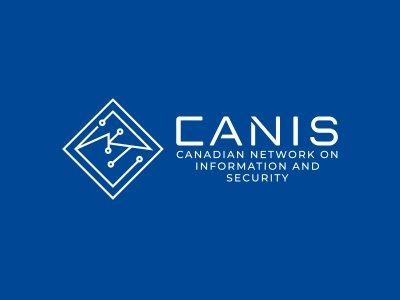New course examines security and the mis/disinformation environment

Some of the world’s leading experts in information security huddled with students at the University of Calgary for a deep dive this summer into one of the most pressing issues of our time: how to promote democratic resiliency in the face of misinformation spread on digital networks.
The Canadian Network on Information and Security (CANIS) in collaboration with the School of Public Policy (SPP) held its first summer school in Calgary from Aug. 22 to 26 at the downtown campus.
The intense program focused on issues and challenges related to mis/disinformation environment as an operational domain. Over the course of five days, the students learned about different threats affecting the information environment in Canada from four distinctive perspectives: political, technological, cognitive/behavioural and legal/ethical.
Amongst the instructors were experts from Carnegie Endowment for International Peace, King’s College in London, Institut de Recherche Stratégique de l’École Militaire in Paris, and Laval University, alongside scholars from four University of Calgary faculties. In addition to the theoretical portion of the course, experts used Canada and China as case studies to demonstrate and compare differences in their approach to the development and spread of disinformation.
The pinnacle of the summer school was a war-game simulation in which the students represented different organizations (Global Affairs Canada, U.S. National Security Council and Meta) tackling issues affecting Canadian foreign policy in regard to Ukraine. The game ended with a simulated press conference where the participants defended their positions and responded to the questions from the audience.
Jackie Sieppert, interim director, the School of Public Policy, says, “The CANIS summer school represents the best of what academia is about: community and academic partners working closely together on important issues, and dialogue among students from diverse academic disciplines. That is the path to find real solutions.”
JC Boucher, scientific director, international policy and trade at the School of Public Policy, and associate professor, adds, “The rapid digitization of our social world has transformed the nature and role of information in our daily life. As such, the information environment has become a place of contention, especially on social media where domestic and international actors use misinformation to influence our society and, in more extreme cases, erode our trust in democratic institutions.
“It is thus imperative to understand how the information space has changed, how to measure and monitor influence operations, study the sources and consequences of mis\disinformation and, ultimately how to promote democratic resiliency,” Boucher says. “As a transdisciplinary network, CANIS aims to become Canada’s hub in the study of mis\disinformation, building international partnerships, and develop teaching and executive training modules.”
This school will take place again next summer as part of the annual CANIS activity.
The Canadian Network on Information and Security examines the impact of the domestic and international information environments on Canadian national defence and security. This is a multidisciplinary, multi-faculty initiative involving the faculties of arts, science, engineering and law. A primary objective of CANIS is to draw novel conclusions about the information environment and its use as an operational domain.
Source: UToday


